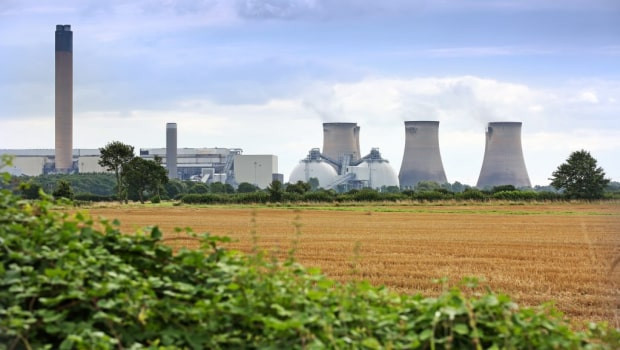Drax 'chopping down' Canadian forests, film claims

Shares in Drax Group were trading lower on Tuesday after the UK firm was accused of chopping down ecologically-important Canadian forests.
Drax Group
632.50p
12:40 24/12/24
Electricity
9,942.35
12:54 24/12/24
FTSE 250
20,571.51
13:00 24/12/24
FTSE 350
4,491.87
12:54 24/12/24
FTSE All-Share
4,449.61
13:14 24/12/24
The Drax power station in Yorkshire, a converted coal plant and Britain’s biggest power station, burns millions of tonnes of imported wood pellets.
Classed as renewable energy, Drax has received £6bn in subsidiaries for producing green electricity, according the BBC. But an investigation by Panorama, broadcast on Monday evening, alleged that Drax was cutting down old-growth forests in British Columbia to make the pellets.
Drax insisted the forests were not harvested for biomass. Instead, it said 80% of the material used in its pellets was sawmill residue - the sawdust, wood chips and bark left over once timber has been processed - and the rest waste material collected from forests.
It added: "Canada has some of the most highly-regulated forests in the world, which ensures the forests in British Columbia are managed properly.
"People living in and around these forests are best placed to determine how they should be looked after, not the BBC."
It added that its lawyers had written to the broadcaster and that it was "considering further action". It also accused the BBC of focusing "primarily on the views of a vocal minority who oppose biomass".
But that did not stop shares in Drax falling in morning trading on Tuesday. The stock lost as much as 7% in early trading before settling 5% lower at 569.5p as at 1000 BST.
Danni Hewson, financial analyst at AJ Bell, said: "Being accused of poor business practices on primetime TV is never a good luck and it’s no wonder that shares in Drax have fallen.
"Many investors will have bought this stock thinking it had good ESG principles but the programme would suggest otherwise."
Burning wood pellets is classed as renewable energy because although it produces considerable greenhouse gases, new trees can be planted to replace old ones and help recapture carbon.
It is controversial, however, with some environmentalists arguing that it can never be truly green as offsetting takes decades. Pellets must also only be made from sustainable wood.